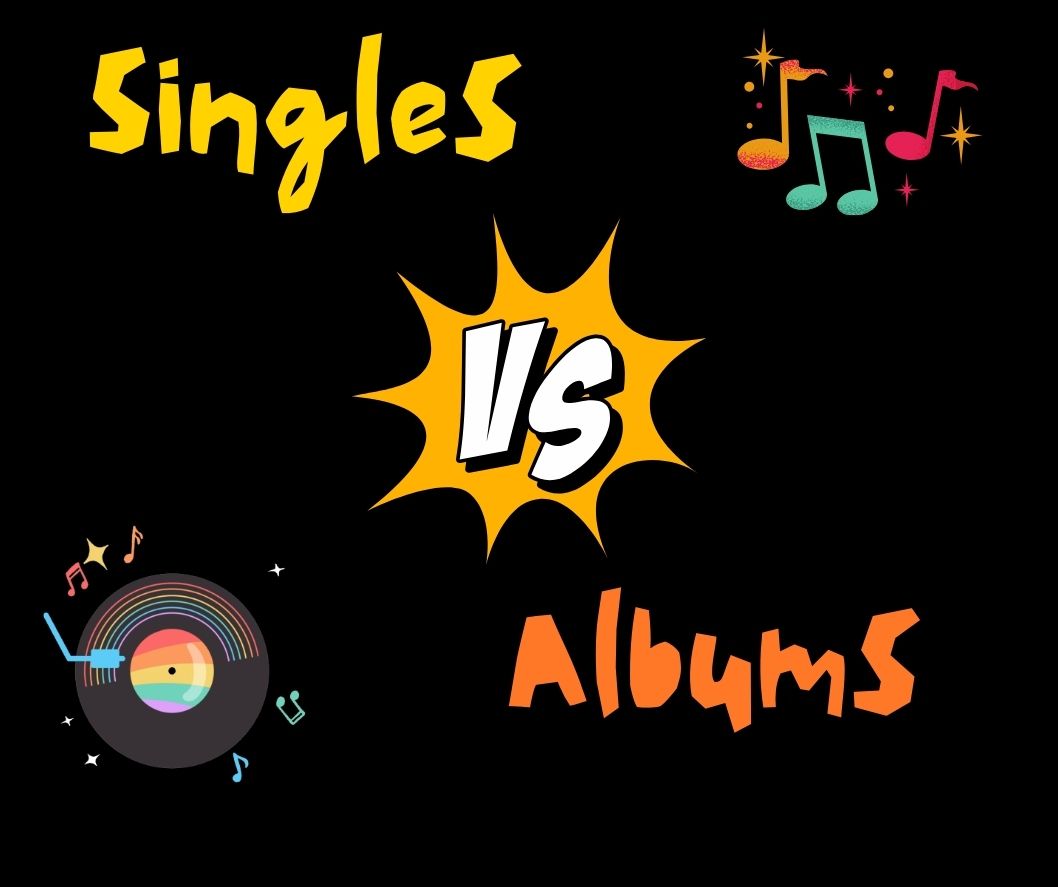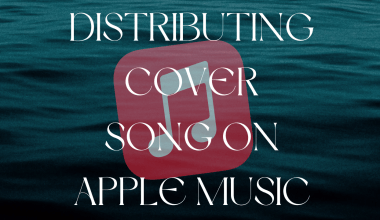In the digital age, releasing singles vs. albums has become a strategic decision for artists aiming to maximize their reach and impact. With the advent of streaming platforms and social media, the way music is consumed has drastically changed. Artists now have the flexibility to choose between distributing singles vs. albums, each with its unique set of advantages and challenges. This blog will explore the best practices for publishing singles vs. albums, helping artists make informed decisions that align with their career goals.
Understanding the Differences
Releasing Singles
Releasing singles involves putting out one song at a time. This strategy is often used by new artists or those looking to maintain a constant presence in the market. Here are some key points to consider:
- Frequent Engagement: Singles allow artists to engage with their audience more frequently. Each release becomes an event that can be promoted and celebrated.
- Focused Promotion: Promoting one song at a time allows for targeted marketing efforts, potentially increasing the impact of each release.
- Cost-Effective: Publishing singles can be less costly than producing a full album, making it a viable option for artists with limited budgets.
Releasing Albums
Releasing albums involves putting out a collection of songs, typically between 8 to 12 tracks. This approach is often used by established artists or those with a cohesive body of work. Key points include:
- Storytelling: Albums provide a platform for artists to tell a more comprehensive story or convey a theme through their music.
- Higher Revenue Potential: Albums can generate more revenue through physical sales, streaming, and merchandise.
- Prestige and Legacy: An album often carries more weight in terms of artistic achievement and can enhance an artist’s legacy.
Best Practices for Releasing Singles
Consistency is Key
Releasing singles consistently is crucial for maintaining audience engagement. A regular release schedule helps in building anticipation and excitement among fans. Here are some strategies:
- Maintain a Schedule: Regular releases keep your audience engaged. Plan a release calendar and stick to it.
- Leverage Social Media: Use platforms like Instagram, Twitter, and TikTok to tease new releases and engage with fans.
Quality Over Quantity
In the realm of publishing singles vs. albums, quality should always take precedence over quantity. Each single should be a polished, well-produced track that stands out in the crowded music landscape.
- Professional Production: Ensure each single is well-produced. Quality trumps quantity in building a loyal fanbase.
- Mastering Services: Consider using AI mastering services to polish your tracks. This ensures consistency and professional sound quality.
Strategic Collaborations
Collaborations can significantly boost the visibility of your singles. Working with other artists or influencers can help you reach new audiences and add variety to your music.
- Feature Artists: Collaborating with other artists can introduce your music to new audiences. Choose collaborators whose fanbase aligns with your target audience.
- Influencer Partnerships: Partner with social media influencers to promote your singles. Their endorsement can significantly boost your reach.
Best Practices for Releasing Albums
Plan and Prepare
Releasing an album requires meticulous planning and preparation. Unlike singles, albums represent a larger body of work and need to be cohesive and well-executed.
- Concept Development: Develop a clear concept or theme for your album. This makes the project more cohesive and appealing.
- Pre-Release Promotion: Build anticipation with singles, teaser videos, and behind-the-scenes content.
Engage Your Audience
Engaging your audience throughout the album release process can create a deeper connection with your fans. This can be achieved through various interactive campaigns and exclusive content.
- Interactive Campaigns: Use social media to involve your audience in the album creation process. Polls, Q&A sessions, and live streams can create a sense of community.
- Merchandise Bundles: Offer merchandise bundles with your album release. This not only boosts revenue but also strengthens fan loyalty.
Distribution Strategy
A well-thought-out distribution strategy is essential for the successful release of an album. Ensure your music is available on multiple platforms and consider offering physical copies for dedicated fans.
- Multiple Platforms: Distribute your album across multiple streaming platforms to reach a wider audience.
- Physical Copies: For dedicated fans, consider offering limited edition physical copies. This adds a tangible element to your release.
Practical Tips for Successful Music Releases
Effective Promotion for Singles
Promotion is key to the success of any music release. For singles, focused and strategic promotion can make a significant difference.
- Playlist Placements: Aim for placements in popular playlists on streaming platforms. This can increase the visibility of your singles.
- Music Videos: Create engaging music videos to accompany your singles. Visual content often garners more attention.
Cross-Promotion Strategies
Cross-promotion involves leveraging different platforms and channels to promote your music. This can help you reach a broader audience and maximize the impact of your releases.
- Social Media Integration: Integrate your single releases with social media campaigns. Hashtags, challenges, and contests can boost visibility.
- Email Marketing: Use email marketing to keep your subscribers informed about new releases. Personalized emails can increase engagement and drive traffic to your music.
Comprehensive Marketing Plan for Albums
Releasing an album requires a comprehensive marketing plan that covers all aspects of promotion and engagement. This ensures that your album reaches as many people as possible.
- Pre-Release Strategy: Develop a detailed pre-release strategy that includes singles, teasers, and promotional content. This builds anticipation and excitement.
- Launch Events: Consider hosting virtual or physical launch events to create buzz around your album release. These events can generate media coverage and increase visibility.
Engaging Fans with Exclusive Content
Offering exclusive content to your fans can create a sense of loyalty and community. This can be particularly effective for album releases.
- Exclusive Content: Offer exclusive content to fans, such as behind-the-scenes footage, interviews, and early access to tracks. This makes them feel valued and appreciated.
- Community Building: Use your album release as an opportunity to build a community around your music. Engage with fans through social media, forums, and live events.
Releasing Singles vs. Albums: Which Strategy is Right for You?
The Changing Landscape of Music Distribution
The music industry has evolved significantly with the rise of digital platforms. Understanding the nuances of releasing singles vs. albums can help artists make strategic decisions that align with their career goals and audience preferences.
Advantages of Releasing Singles
Singles offer a unique set of advantages, especially in today’s fast-paced digital world:
- Immediate Feedback
- Audience Reaction: Releasing singles allows artists to gauge audience reaction quickly. This feedback can be invaluable for future releases.
- Adjust and Adapt: Based on feedback, artists can make adjustments to their style, production, or marketing strategies.
- Building Momentum
- Regular Releases: Frequent releases keep the audience engaged and build momentum over time.
- Algorithm Favorability: Streaming platforms often favor artists who release content regularly, leading to better algorithmic promotion.
Advantages of Releasing Albums
While singles have their perks, albums also offer significant advantages:
- Deep Artistic Expression
- Narrative Development: Albums provide a broader canvas for storytelling and artistic expression.
- Diverse Soundscapes: Artists can explore different sounds and styles within an album, offering a richer experience to listeners.
- Increased Revenue Streams
- Physical Sales: Albums can generate revenue through physical sales, including vinyl, CDs, and special editions.
- Merchandise Opportunities: Album releases often coincide with merchandise drops, enhancing overall revenue.
Practical Examples and Case Studies
To illustrate the effectiveness of these best practices, let’s look at some practical examples and case studies of artists who have successfully navigated the releasing singles vs. albums landscape.
Tips for New Artists
For new artists, deciding between releasing singles vs. albums can be daunting. Here are some tailored tips:
Starting with Singles
- Build Your Brand: Start with singles to build your brand and establish a presence in the music industry. This allows you to refine your sound and understand your audience.
- Gather Feedback: Use the feedback from your singles to improve and evolve. Engage with your audience on social media to understand what they like.
- Gradual Release: Release singles gradually to keep your audience engaged. This strategy helps in maintaining a steady growth in your fan base.
Transitioning to Albums
- Conceptualize Your Album: Once you have a solid fan base, start working on a cohesive album. Make sure the album tells a story or follows a theme.
- Pre-Release Singles: Release a few singles from the album to build anticipation. This helps in keeping your audience excited and eager for the full album.
- Promotion and Engagement: Plan a robust promotional campaign around your album release. Utilize social media, email marketing, and virtual events to maximize reach.
Social media plays a crucial role in the success of music releases. Whether you are releasing singles vs. albums, effective use of social media can significantly boost your reach and engagement.
- Consistent Posting: Maintain a consistent posting schedule to keep your audience engaged. Share behind-the-scenes content, teasers, and interactive posts.
- Engage with Fans: Respond to comments, hold live sessions, and create polls to involve your fans in the release process. This builds a community around your music.
- Use Hashtags: Utilize relevant hashtags to increase the visibility of your posts. Research popular hashtags in the music industry and incorporate them into your posts.
- Collaborations: Partner with influencers and other artists for cross-promotions. This exposes your music to a broader audience.
Final Thoughts
The debate between releasing singles vs. albums is ongoing, and the right choice depends on various factors, including your career stage, goals, and audience. Both strategies have their unique advantages, and understanding them can help you make informed decisions.
By following the best practices outlined in this blog, you can effectively navigate the complexities of distributing singles vs. albums and achieve success in your music career. Remember, whether you choose to release singles or albums, the key lies in consistent engagement, quality production, and strategic promotion.
Conclusion
Deciding between releasing singles vs. albums is a crucial decision that can impact an artist’s career trajectory. Both strategies have their merits, and the best choice depends on your specific goals and circumstances. By understanding the benefits and challenges of each approach, artists can make informed decisions and execute their releases effectively.
Related Articles:
For further reading, explore these related articles:
For additional resources on music marketing and distribution, visit Deliver My Tune.






